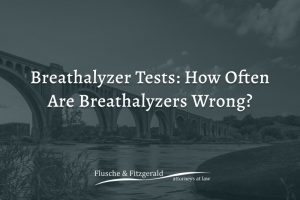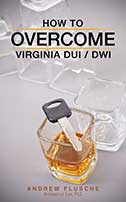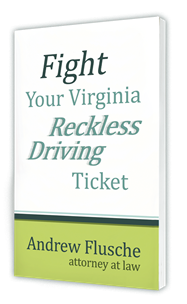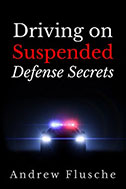Breathalyzer Tests: How Often Are Breathalyzers Wrong?

Examining Breathalyzer Accuracy
Breathalyzer readings are generally accurate when administered correctly. However, studies suggest that errors occur in a significant percentage of cases, highlighting why challenging results in Virginia DUI cases is often warranted.
Reasons for potential inaccuracies include:
- Calibration Issues. These devices require regular calibration to maintain reliability. If not properly maintained, they may deliver flawed results.
- Procedural Errors. Law enforcement must follow specific protocols when using a breathalyzer. Deviations from these procedures can affect the validity of the results.
- Environmental Influences. External factors, such as temperature variations or chemical fumes, can interfere with the device’s performance.
Understanding these issues is crucial. If any of these factors apply to your situation, they could provide grounds to challenge the test’s results.
What Besides Alcohol Can Set Off a Breathalyzer?
Breathalyzers are designed to detect ethanol—the type of alcohol found in beverages. However, other substances can cause inaccurate readings, including:
- Personal hygiene products. Mouthwashes or sprays containing alcohol may linger in the mouth, affecting results.
- Medications. Certain over-the-counter remedies, including cough syrups, contain alcohol that can influence tests.
- Medical conditions. Diabetic individuals or those following low-carb diets can produce acetone, which mimics ethanol in readings.
Knowing these triggers can help you identify potential inaccuracies in your own case. Always inform your attorney about any relevant factors that could have affected the test results.
Foods That Cause False Positive Breathalyzer Results
Surprisingly, everyday foods and beverages may also lead to false positives, including:
- Fermented products. Items such as bread or ripe fruit may contain trace alcohol from fermentation.
- Non-Alcoholic drinks. Even beverages labeled “non-alcoholic” often contain small quantities of alcohol.
- Energy drinks. Ingredients in these beverages may mimic alcohol when analyzed by a breathalyzer.
If you suspect your BAC reading was impacted by food or drink, providing this information to your legal team is essential for building your defense.
Can Breathalyzers Produce False Negatives?
A false negative from a breathalyzer is less frequent than a false positive but can occur. These situations arise when the device fails to detect alcohol despite its presence. Factors contributing to false negatives include:
- Incorrect use. Errors during administration may lead to inaccurate readings.
- Residual alcohol dilution. Consuming water or certain substances may lower detectable alcohol levels.
- Testing timing. BAC readings can fluctuate depending on how long it has been since alcohol consumption.
The biggest issue we see these days with zeroes on the breathalyzer is that the police then simply assume you must be on drugs. That often escalates the situation into a demand and/or search warrant for your blood.
Steps to Take If You Question a Breathalyzer’s Accuracy
Inaccurate breathalyzers is why we recommend that you should NEVER consent to a preliminary/portable breath test in Virginia. That handheld test is always optional, and if it detects any alcohol, that alone can be used as a reason to arrest you.
If you believe your breathalyzer result was inaccurate, consider taking these steps:
- Document key details. Record what you ate, drank, or any medications you used before the test. Environmental conditions at the time of testing can also be relevant.
- Seek legal advice. An experienced attorney can analyze the facts of your case and challenge unreliable evidence in court.
Promptly taking these steps ensures your case has the strongest possible foundation. Accurate documentation and timely legal intervention can significantly impact the outcome.
How Flusche & Fitzgerald Can Help
At Flusche & Fitzgerald, we focus exclusively on traffic-related cases, including DUI charges. Our streamlined approach minimizes your stress while ensuring every detail of your case is addressed. From improper calibration to procedural errors, we scrutinize every aspect of your breathalyzer test.
Our attorneys have years of experience navigating Virginia’s courts and maintaining professional relationships with local officers, prosecutors, and judges. These connections, coupled with our focused practice, allow us to achieve the best possible outcomes for our clients.
If you’re facing a DUI charge and believe a breathalyzer test was wrong, let us be your advocates. Contact Flusche & Fitzgerald today for a consultation. Together, we can work toward safeguarding your future and ensuring your case receives the care and expertise it deserves.





